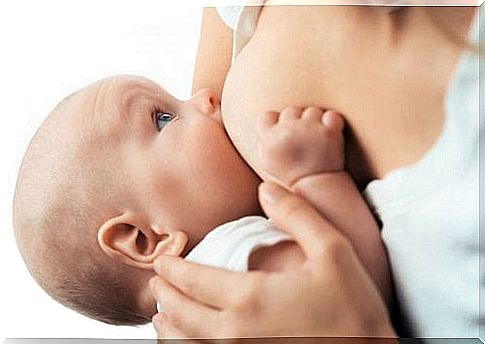Is Prolonged Breastfeeding Harmful To Mothers?

When a mother is breastfeeding for more than nine months, it is not uncommon for her to face criticism from family members, friends and the general public. Social pressure is one of the biggest difficulties with prolonged breastfeeding, and it gets worse for mothers who only start weaning after two years.
The World Health Organization (WHO) recommends exclusively breastfeeding during the first six months of life and combining it with other foods until at least two years of age. After that time, it is up to the mother and the child to decide how to proceed.
As a result, prolonged breastfeeding can be completely normal for six or seven years, as there is no evidence that it would be harmful to either the baby or the mother.
On the contrary, many studies support long-term breastfeeding as a way to strengthen the bond between mother and child while providing nutritious food that protects and helps develop the immune system. It also helps the baby feel safe with his mother and provides beneficial skin contact.
The studies conclude that the longer the breastfeeding time , the greater the benefit for both mother and child, which will affect their health throughout life.

It should be noted that the natural weaning period usually occurs between two and six years. To ensure that the baby gets all the nutrients from milk to develop strong bones and organs, he should drink breast milk instead of regular cow’s milk during that period.
But despite the many benefits of breast milk, it is not recommended to breastfeed for more than two years.
Prolonged breastfeeding for the mother usually involves social and cultural problems. These are pressures that mothers do not always handle particularly well, even if one is aware of the benefits of breast milk.
Social barriers
It is often assumed that prolonged breastfeeding can harm the baby and cause mental problems, and that after the first nine months, breast milk no longer has enough nutrition.
The problem with prolonged breastfeeding is the lack of information on the subject. Society should be informed about the benefits of long-term breastfeeding to help mothers who have chosen to continue breastfeeding for as long as they and their children want.
The benefits of extended breastfeeding for mother and child
There is scientific evidence that the longer you breastfeed, the greater the benefits for the baby and the mother. Among other things, it helps reduce diarrhea, acute infectious diseases, obesity, diabetes and cancer in children.

Breastfeeding longer is far from harmful and instead beneficial to the mother’s physical and mental health. Those who do so have a lower probability of getting breast and ovarian cancer.
In addition, it helps keep blood pressure and cholesterol low. Mothers also have a lower risk of developing type 2 diabetes and osteoporosis.
Many studies suggest that breast milk does not lose its nutrients over time, but on the contrary, after the first year, it actually becomes richer in fat and energy. It is linked to better cognitive and psychomotor development in children.
Given that a child’s immune system is not fully developed until the age of 7, the pediatrician should recommend that the mother breastfeed the child for a longer period of time.
Breast milk is more beneficial than any other type of milk due to the high proportion of antibodies and nutrients, which gives children greater protection against infections.
In summary, extended breastfeeding only offers benefits for the mother and baby. The questioning and criticism of the whole thing is based on false beliefs and prejudices.









